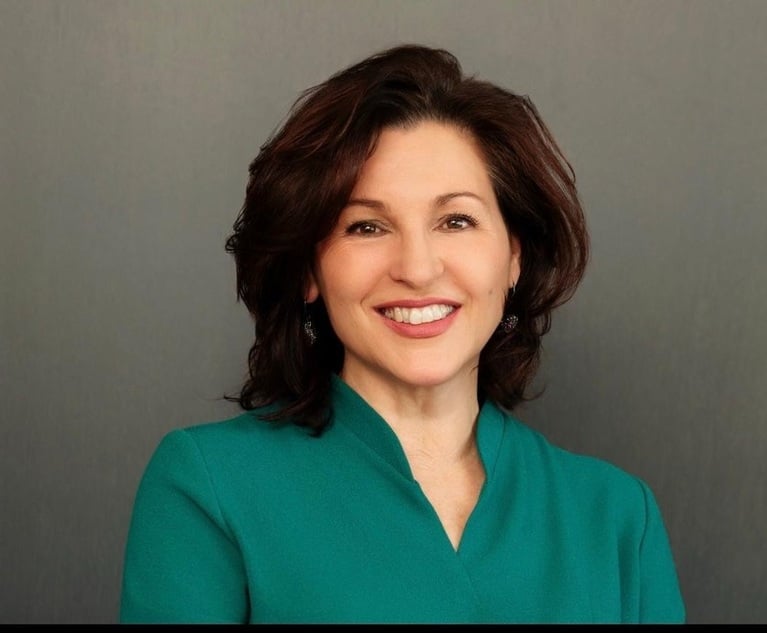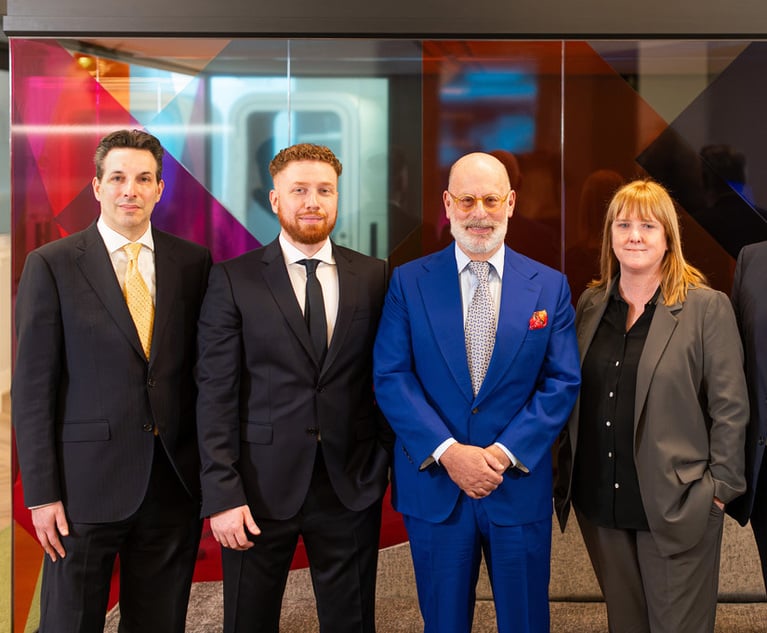Slaughters, Sullivan guide Standard Chartered to £217m US settlement
Slaughter and May corporate partner Nigel Boardman and dispute resolution partner Richard Swallow helped Standard Chartered yesterday (14 August) reach a $340m (£217m) settlement with the New York State Department of Financial Services (DFS) over allegations that it breached US sanctions and hid transactions with Iran. The magic circle firm provided UK advice to the bank, alongside Wall Street leader Sullivan & Cromwell, where corporate and financing partner Rodgin Cohen and dispute resolution partner Samuel Seymour provided US advice. Both firms were instructed after the alleged illegal activity took place.
August 15, 2012 at 06:19 AM
3 minute read
Slaughter and May corporate partner Nigel Boardman and dispute resolution partner Richard Swallow helped Standard Chartered yesterday (14 August) reach a $340m (£217m) settlement with the New York State Department of Financial Services (DFS) over allegations that it breached US sanctions and hid transactions with Iran.
The magic circle firm provided UK advice to the bank, alongside Wall Street leader Sullivan & Cromwell, where corporate and financing partner Rodgin Cohen and dispute resolution partner Samuel Seymour provided US advice. Both firms were instructed after the alleged illegal activity took place.
Confirmation of the settlement means Standard Chartered will avoid having its New York banking licence revoked and comes just over a week after the bank was accused by the DFS of hiding transactions worth around $250bn (£160bn) which breached sanctions.
A filing submitted by the DFS stated that Standard Chartered actions "left the US financial system vulnerable to terrorists, weapons dealers, drug kingpins and corrupt regimes".
The resolution will be seen as controversial by some who argued that the New York regulator has upstaged other US authorities, however it will also be seen as a victory for New York superintendent of financial services , Benjamin Lawsky, who brought the claim.
Last week's DFS filing, which was strongly refuted by the UK-bank, suggested Standard Chartered London-based group legal counsel repeatedly ignored external legal advice about the transactions.
The document refers to in-house counsel's involvement in the alleged money laundering as early as 1995, stating the "general counsel embraced a framework for regulatory evasion".
According to the document, in 2001 the bank sought advice from outside counsel, (reportedly Morrison & Foerster) who informed the legal and compliance departments that in order to comply with US law, Standard's New York branch would have to ascertain that the US dollar clearing transactions were permissible.
It states the external advice was ignored, with senior legal figures within the bank conspiring "with Iranian clients to transmit misinformation to the New York branch by removing and otherwise misrepresenting wire transfer data that could identify Iranian parties."
Further external advice in 2003 warned the bank about its strategy with Iranian financial institutions, but it was not until 2005 that a senior member of the legal department said in an email that failing to take the sanctions seriously meant risking "penalties ranging from civil enforcement actions to criminal prosecutions."
Standard Chartered previously defended its position in a statement, pointing out that it voluntarily approached all relevant US agencies in January 2010 to inform them about a review of transactions relating to Iran between 2001-2007 and their compliance with US laws.
It said the DFS had not provided "a full and accurate picture of the facts" and said "well over 99.9% of the transactions relating to Iran complied with the U-turn regulations. The total value of transactions which did not follow the U-turn was under $14m (£8.9m)."
Yesterday's settlement with New York does not rule out further penalties from other US regulators.
This content has been archived. It is available through our partners, LexisNexis® and Bloomberg Law.
To view this content, please continue to their sites.
Not a Lexis Subscriber?
Subscribe Now
Not a Bloomberg Law Subscriber?
Subscribe Now
NOT FOR REPRINT
© 2025 ALM Global, LLC, All Rights Reserved. Request academic re-use from www.copyright.com. All other uses, submit a request to [email protected]. For more information visit Asset & Logo Licensing.
You Might Like
View All
Hengeler Advises On €7B Baltica 2 Wind Farm Deal Between Ørsted and PGE
2 minute read

A&O Shearman To Lose Another Five Lawyers, Including Madrid Practice Head, to EY
3 minute read
Rosenblatt Breaks Away From RBG, Becomes 40-Strong Standalone Firm
Trending Stories
- 1Uber Files RICO Suit Against Plaintiff-Side Firms Alleging Fraudulent Injury Claims
- 2The Law Firm Disrupted: Scrutinizing the Elephant More Than the Mouse
- 3Inherent Diminished Value Damages Unavailable to 3rd-Party Claimants, Court Says
- 4Pa. Defense Firm Sued by Client Over Ex-Eagles Player's $43.5M Med Mal Win
- 5Losses Mount at Morris Manning, but Departing Ex-Chair Stays Bullish About His Old Firm's Future
Who Got The Work
J. Brugh Lower of Gibbons has entered an appearance for industrial equipment supplier Devco Corporation in a pending trademark infringement lawsuit. The suit, accusing the defendant of selling knock-off Graco products, was filed Dec. 18 in New Jersey District Court by Rivkin Radler on behalf of Graco Inc. and Graco Minnesota. The case, assigned to U.S. District Judge Zahid N. Quraishi, is 3:24-cv-11294, Graco Inc. et al v. Devco Corporation.
Who Got The Work
Rebecca Maller-Stein and Kent A. Yalowitz of Arnold & Porter Kaye Scholer have entered their appearances for Hanaco Venture Capital and its executives, Lior Prosor and David Frankel, in a pending securities lawsuit. The action, filed on Dec. 24 in New York Southern District Court by Zell, Aron & Co. on behalf of Goldeneye Advisors, accuses the defendants of negligently and fraudulently managing the plaintiff's $1 million investment. The case, assigned to U.S. District Judge Vernon S. Broderick, is 1:24-cv-09918, Goldeneye Advisors, LLC v. Hanaco Venture Capital, Ltd. et al.
Who Got The Work
Attorneys from A&O Shearman has stepped in as defense counsel for Toronto-Dominion Bank and other defendants in a pending securities class action. The suit, filed Dec. 11 in New York Southern District Court by Bleichmar Fonti & Auld, accuses the defendants of concealing the bank's 'pervasive' deficiencies in regards to its compliance with the Bank Secrecy Act and the quality of its anti-money laundering controls. The case, assigned to U.S. District Judge Arun Subramanian, is 1:24-cv-09445, Gonzalez v. The Toronto-Dominion Bank et al.
Who Got The Work
Crown Castle International, a Pennsylvania company providing shared communications infrastructure, has turned to Luke D. Wolf of Gordon Rees Scully Mansukhani to fend off a pending breach-of-contract lawsuit. The court action, filed Nov. 25 in Michigan Eastern District Court by Hooper Hathaway PC on behalf of The Town Residences LLC, accuses Crown Castle of failing to transfer approximately $30,000 in utility payments from T-Mobile in breach of a roof-top lease and assignment agreement. The case, assigned to U.S. District Judge Susan K. Declercq, is 2:24-cv-13131, The Town Residences LLC v. T-Mobile US, Inc. et al.
Who Got The Work
Wilfred P. Coronato and Daniel M. Schwartz of McCarter & English have stepped in as defense counsel to Electrolux Home Products Inc. in a pending product liability lawsuit. The court action, filed Nov. 26 in New York Eastern District Court by Poulos Lopiccolo PC and Nagel Rice LLP on behalf of David Stern, alleges that the defendant's refrigerators’ drawers and shelving repeatedly break and fall apart within months after purchase. The case, assigned to U.S. District Judge Joan M. Azrack, is 2:24-cv-08204, Stern v. Electrolux Home Products, Inc.
Featured Firms
Law Offices of Gary Martin Hays & Associates, P.C.
(470) 294-1674
Law Offices of Mark E. Salomone
(857) 444-6468
Smith & Hassler
(713) 739-1250








